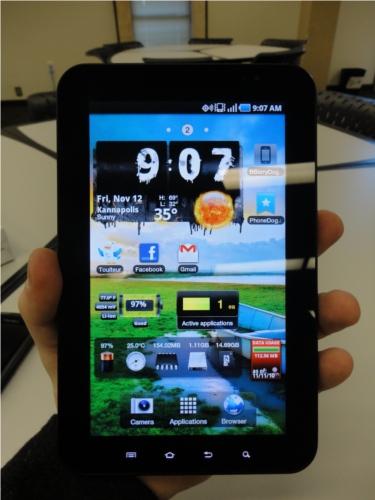Upgrade time has finally come. You head to the local carrier store to pick up the phone you've been reading rumors and news about for months. All of the tech sites' reviews are up and the phone is decidedly the "best of the best" by unanimous decision. You bite the bullet, sign the contract and swipe your card. You get home that night and begin to skim headlines, only to find that the next iteration of the phone you just bought has already been leaked and is rumored for release not too far down the road.
It is easy to be tempted to return the new phone and wait it out for the successor, but that will only cause several more months of anxiety and anticipation – something that you have already endured for long enough. On top of that, if you wait it out, the same thing might (and likely will) happen again. It's perpetual and inescapable.
We have all been there and it's extremely frustrating. Months ago, this was only a problem in the PC and cell phone markets. More recently, however, this has become a problem in the tablet space, too.
I ordered my ASUS Eee Pad Transformer at the end of April; it finally came in the mail in mid-May. We are now coming to a close in June and there is already talk of the next iteration of the Transformer by Fall (October at the earliest). The Tegra 3 quad-core processor of the rumored tablet will put my current dual-core tablet to shame. Just like Alex predicted, I am about as happy as a clam right now.
This also happened to me with the original Galaxy Tab, except the rumors of the second-gen Galaxy Tab were already spreading by the time I had logged into my Google account and updated my RSS feeds on my Tab, early on launch day. In fact, I hadn't even left the store with the Tab yet before I read a headline containing "Galaxy Tab successor." There has also been talk of a successor to the Motorola XOOM, which has only been out since the end of February.
As fast as devices are being updated and evolving, it should come as no real surprise. While it isn't exactly what we want, in essence, we are getting what we have asked for: bigger, better and "badder" technology. The problem is, manufacturers are taking baby steps and releasing devices with each tiny stride.
Being a luxury item, tablets are a much larger investment that customers generally have a harder time pulling the trigger on. Signing a two-year contract and paying roughly $200 for a phone that you will use numerous times every single day is one thing. A tablet, which only acts as a supplementary device in most cases, will set you back $400 to $900. Even with a two-year agreement, tablets still run in the ballpark of $500 to $600. This is an entirely different story.
I'm at peace with the cell phone market and numerous phones releasing each month. If you haven't accepted the fact that most phones are irrelevant before they ever hit the market, you're likely going to be disappointed with your next phone rather quickly. But making this adjustment for tablets isn't going to come easy. I have a keen liking for the blown-up smartphones and like to stay ahead of the tablet curve, since I no longer can with phones. With their production slowly catching up to that of phones, this, too, will be impossible.
What say you, pups? Am I just tablet-crazed? Do I simply have a problem with compulsive buying and the constant need to stay ahead? Or is this super fast innovation and production of mobile devices getting out of hand?
- Log in to post comments
